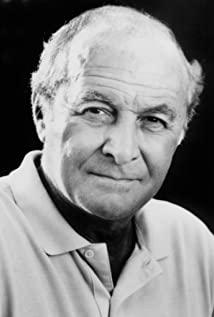In the days that followed, a scene in the film was unforgettable to me: a psychiatrist was invited to give an interview on TV. He was supposed to make expert remarks on recent social hotspots, but he wept bitterly on the live broadcast and accused himself of being a "liar". Asking everyone to stop buying his own books, I was a little curious about whether this would really happen with live TV in the United States. Yes, that's right, he's a liar, and patients want to be lied to.
The patients in the film feel that there is some problem in their existing life and are very distressed, so they spend money to seek professional help: a psychiatrist. Hope doctors use the power of science to help them out of the predicament of their minds, just as a surgeon heals a patient's body with surgery. They sat on the large sofa in the study and confided their privacy to the doctor. After venting all kinds of bizarre things, just hear some professional terms such as "compulsive", "psychic", "hereditary" from the doctor's mouth, and believe that their distress can be solved by participating in regular treatment will gradually reduce. It doesn't matter when it will be cured, what matters is that there is hope for gradual relief. The patients were comforted, felt that it was really helpful, and went back to their familiar lives.
On the part of the doctor, he also feels satisfied that through his compassion and expertise, he can help his patients, and at the same time, he is paid handsomely from his celebrity clients in the entertainment industry. The life of a psychiatrist is roughly like this. It's just that the psychiatrist played by Kevin in the film has recently suffered a big change: his wife committed suicide.
After that, the doctor's life was completely abandoned: he didn't shave his beard, grass grew in the swimming pool, the car logo was crooked, and he was accompanied by alcohol and drugs all day long. Work tumultuous, lethargic, and finally realize that his so-called treatments are just tools for patients to deceive themselves so that they don't have to actually change their long-accustomed lives.
The characters on the silver screen are like this, do we also behave in this way in front of the computer? Does man act both as a patient and as his own psychiatrist? When there are some unpleasant emotions in our hearts, such as: desire to stand out, beautiful women are not available, guilt, jealousy, etc., will we immediately ask a psychiatrist to start comforting ourselves? When prescribing a psychiatrist, what treatments are available? Anesthesia: alcohol, drugs, video games, etc.; website: Taobao, Qiqi, Autohome, adult website; works: movies, novels, success, psychology, philosophy; ideas: science, ideals, morality, fairness , justice, human progress, the interests of the majority, and so on, everything that can deceive our senses, provide false hope, and convince us that there is nothing wrong with what we are doing.
After all, these are just props, but the quality is different. The main thing is people's wishes: seeking happiness and well-being, having more than one year, fear of losing the quality of life that is accustomed to, longing for comfort, peace of mind, peace of mind, a clear conscience, and a happy mood. So can the habit of self-deception not go deep into the bone marrow? So I think it's better to use anesthesia-type props.
Can one live without deceiving oneself?
View more about Shrink reviews











